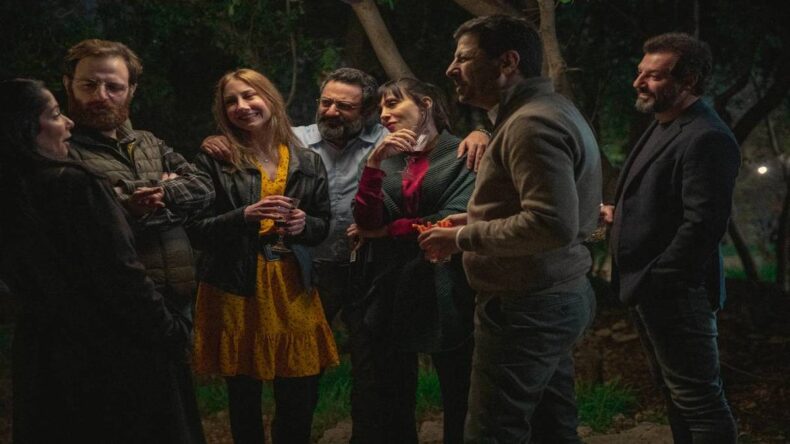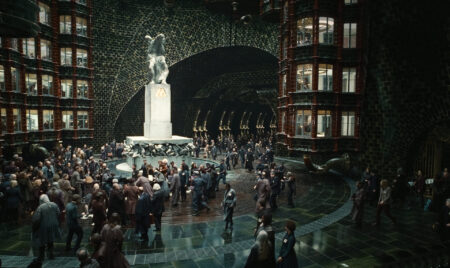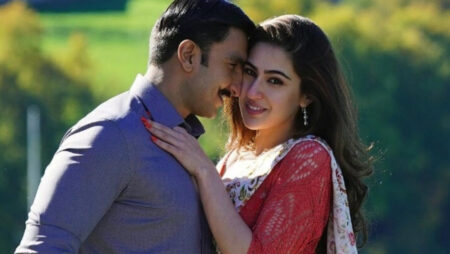Arabic Film “Ashab Wala A’azz”
- The Italian adaptation of Arabic Film sparked controversy.
- Arabic Film highlights Homosexuality and other issues but faces significant backlash.
Titled “Ashab Wala A’azz”, which means “No Dearer Friends”, is an Arabic version of the Italian Hit “Perfect Strangers”, which has created a controversial buzz in the Middle East countries.
The reason is that the Arabic film is blamed for threatening the family and religious values, which is deemed unfit for Arab societies. The Film is also accused of encouraging Homosexuality, and it certainly does not abide by Arab values.
People and critics, in general, are speaking up against what they consider to be a bad influence on their culture and tradition.
At the same time, others are also defending the movie as they argue that those who do not like the movie are free to unsubscribe from Netflix or simply skip the Film.
The movie is about seven friends at a dinner party gone wrong after the hostess suggests that, as a game, they agree to share any calls, texts and voice messages. And as smartphones ring, secrets are revealed, infidelities are exposed, and relationships are tested.
All this has managed to spark a lot of controversies as the debates continue in the region over artistic freedom versus social and religious sensitivities, censorship and what constitutes a taboo in different societies and portrayal of gay characters.
The cultural dilemma in the Middle East and the question of Homosexuality
It is known that the Middle Eastern countries are highly conservative, profoundly puritanical and orthodox.
So, the irony is that Netflix in the Middle East shows many non-Arabic movies and series that feature gay characters, including premarital and extramarital sex scenes. Even nudity doesn’t lead to much of an outcry among the Arabs.
But with, a recent Arabic Film like “Ashab Wala A’azz”, which was in the Arabic language with Arab actors, went a little too far with the collective rage of the public.
At the same time, there are no scenes on nudity, but it is essentially an hour and a half of people talking around a dinner table. There is a significant cultural disparity between the West and the Middle East.
To an Arab, a foreign film is a foreign film. But the problem arose when the same foreign concept of love and liberality in marriage and sex imbibed in an Arabic film portrayed by Arabic characters in the same language.
A thirty-seven-year-old Elham, an Egyptian, said,
“We don’t accept the idea of homosexuality or intimate relations before marriage in our society, so what happened was a cultural shock.”
In particular, Homosexuality is a strong taboo in Egypt. A 2013 survey report by the Pew Research Center claims that 95% say it should be rejected by society, while in Lebanon, the number stood at 80%.
While a strong supporter of the Netflix movie wrote in her tweet,
“There’s nothing like the Arab world’s hatred of the truth.”
Rabih Farran, a Lebanese journalist who stood against the backlash.
Arab’s battle in Truth versus Tradition
The beliefs and traditions of the world are constantly changing, and it is more so because of the digital world where the majority live by default.
Technology influences society in more than one way, so blaming movies for threatening the culture and values of a particular community is ridiculous and a fallacy.
While debating on a show, Magda Maurice, an art critic, said,
“This movie exposes what mobile phones do to people and their normal lives”.
On the other hand, Film critic Khaled Mahmoud said that Egypt, in particular, has produced more powerful and daring movies in the past.
Still, now the value-centric audience supports the trend of “clean cinema”, which emphasizes appropriate family themes with no physical intimacy and ‘immodest’ attire.
He added, “Our job is to let art be art. We cannot critique art through a moral lens”.
Edited By- Subbuthai Padma
Published By- Satheesh Kumar













